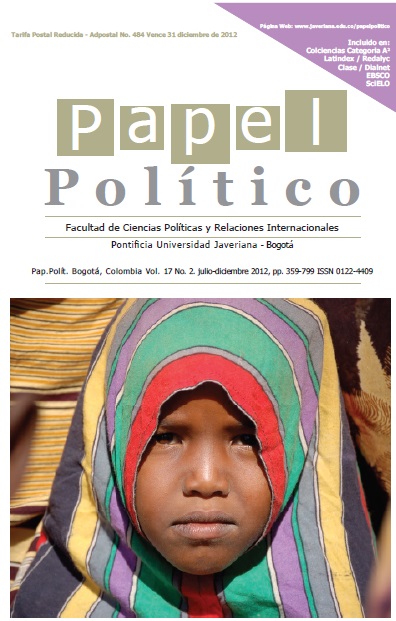Abstract
Electoral reforms have been an institutional argument used in the political system to adapt technically and methodologically the competition to the power. But in the search to a better electoral process that is based on principles and functions to optimal development and recognition, it appears democratic shortcomings, weaknesses and imbalances in the rules; so that a reform is another perspective in adopting or always adjust the issues are pending or arenecessary to correct promptly, or to mitigate the negative consequences of unforeseen or unavoidable reforms, themselves, particularly when they afflict inconvenience or flagrantly interested formulations without consensus. The
electoral system should be evaluated considering the operation itself and its effects on society and in general, the political system. Therefore, electoral policy adjustments must respond not only to the strong institutional and neo-institutional constraints (for excessive formalism) but also, according to Dieter Nolhen, the contextual relevancy and the search of a better and more
legitimate democracy.
This journal is registered under a Creative Commons Attribution 4.0 International Public License. Thus, this work may be reproduced, distributed, and publicly shared in digital format, as long as the names of the authors and Pontificia Universidad Javeriana are acknowledged. Others are allowed to quote, adapt, transform, auto-archive, republish, and create based on this material, for any purpose (even commercial ones), provided the authorship is duly acknowledged, a link to the original work is provided, and it is specified if changes have been made. Pontificia Universidad Javeriana does not hold the rights of published works and the authors are solely responsible for the contents of their works; they keep the moral, intellectual, privacy, and publicity rights.
Approving the intervention of the work (review, copy-editing, translation, layout) and the following outreach, are granted through an use license and not through an assignment of rights. This means the journal and Pontificia Universidad Javeriana cannot be held responsible for any ethical malpractice by the authors. As a consequence of the protection granted by the use license, the journal is not required to publish recantations or modify information already published, unless the errata stems from the editorial management process. Publishing contents in this journal does not generate royalties for contributors.


